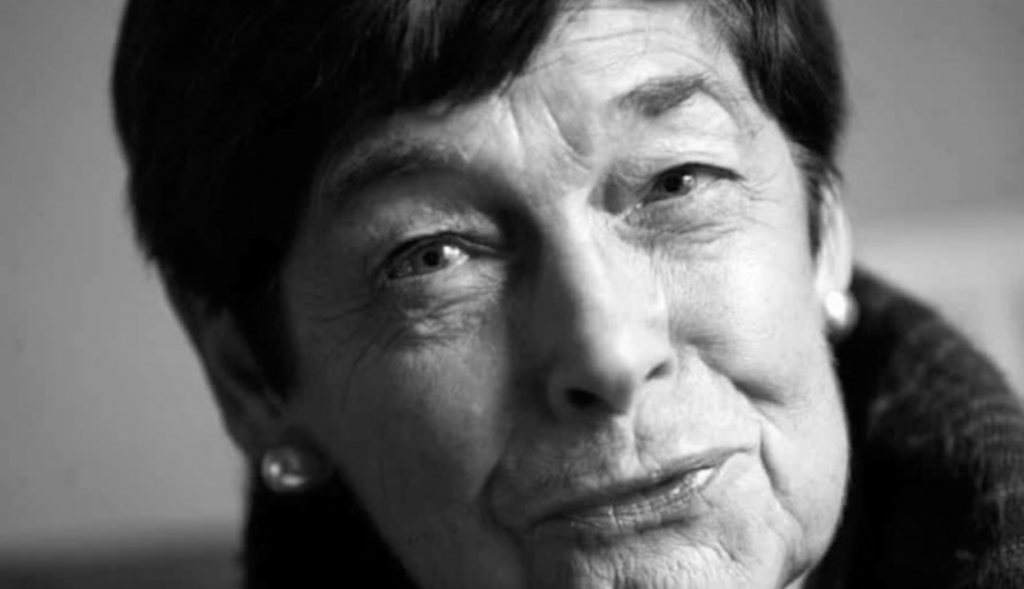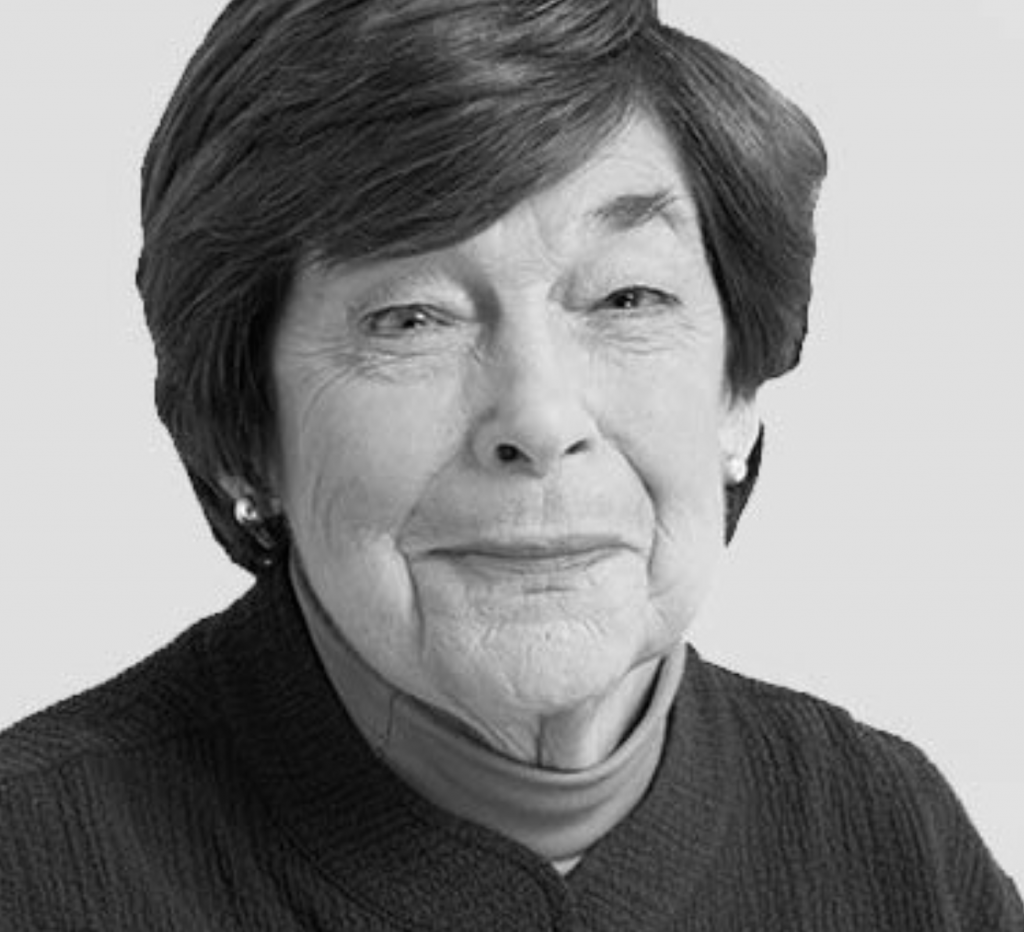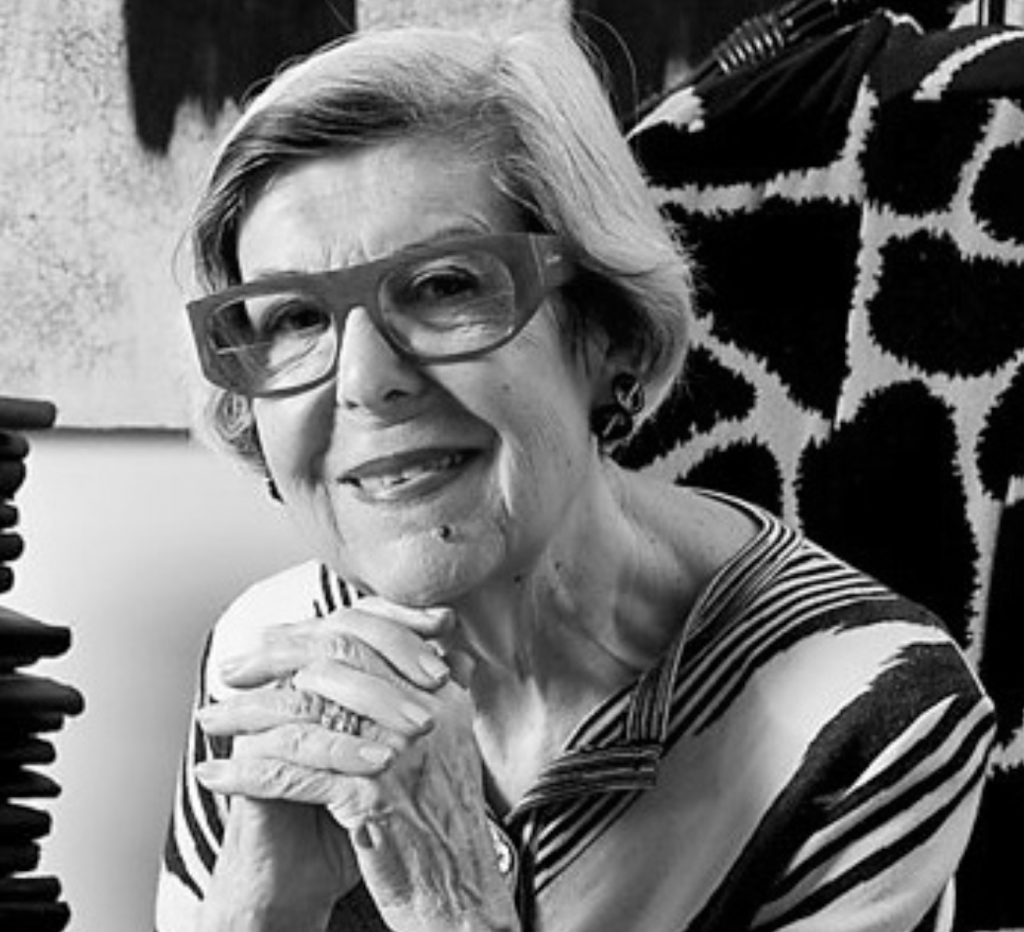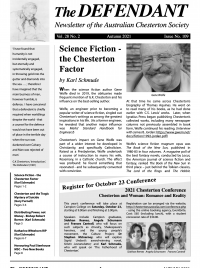
A popular British journalist of the second half of the 20th century, Katharine Whitehorn, who died recently at the age of 92, was a great admirer of Chesterton from her earliest days.
Whitehorn was notable for being the first woman to have a regular column in a large-circulation newspaper, The Observer (London), and among its most prominent columnists for several decades, 1960-1996. In a tribute, the former Editor of the London Telegraph, Charles Moore, recalled that she first wrote for the London Spectator, beginning a column called ‘Roundabout’ in 1959:
“I knew exactly what I wanted to do with it,” Whitehorn recalled. “It was to start with a report on something – a book, an event, a trend – and then make a thoughtful, or ribald, point from it, so that it was not just reportage.”
“The Spectator’s Notes”, The Spectator, 16 January 2021
Whitehorn pioneered a distinctive style of “confessional journalism.” It combined personal reminiscence which was sharp and candid with broader insights into changing social mores, particularly relating to the role of women in society and relations between the sexes.
In a best-selling book, Cooking in a Bedsitter (1961), she offered various bits of practical advice. She was fond of the casserole, which she introduced in the following, entertaining way:
“A French politician representing a somewhat backward district in Africa was found to have been eaten by his constituents. The journalist who discovered this used the phrase: ‘Je crois qu’il a passé par la casserole’ (‘I think he ended up in a casserole’). Clearly the Africans knew what they were about. For making a meal out of tough and intractable material, the casserole has no rival.”
A schoolgirl’s hero
In a column marking the 50th anniversary of Chesterton’s death (“G.K. Chesterton Revisited,” The Observer, 29 June 1986), Whitehorn recalled:
“[Chesterton] was my great hero when I was at school. No doubt, most people processed through education worship the author in whose work they first read all the great platitudes of mankind. Chesterton wasn’t the first person to suggest that there is order in the universe, or that the poor get pushed around by the rich, or that the more you look at things the less you see them, unless you continually jolt yourself into a new awareness – which he was singularly good at doing. But he was for me.”
Reflecting on Chesterton’s social philosophy, she asked whether Distributism still held meaning for our society half a century after his death.
Timid plants of Distributism
She described the Distributist as “someone who believes that all policies and laws should be directed, not at letting the State run things for the common good, or letting market forces rip for the common prosperity, but at letting as many people as possible have their own little bit of property, their own autonomy.”
In the provocative style that characterised her columns, Whitehorn argued that it was “as ridiculous to approve of property and let a few men have a grossly unfair share of it, as say you are all for marriage, and then let one man have all the wives.”
“I am inclined to think,” she concluded, “that [Distributism] is more relevant now than it would have seemed 20 years ago.”
This was in the mid-1980s. Whitehorn detected what she called “one or two timid plants” that were ”uncommonly like Distributism”.

“I still occasionally find that the last word on something I’m writing about was said by this blasted man before the First World War.”
These included the novelist and journalist, Keith Waterhouse, an “old-time socialist”. More and more, she thought, he seems “to be standing up for the small inviolate homes and corner shops and local angers of ordinary people who are not to be steam-rollered by the well-meaning planners, social workers; still less by the ill-meaning bosses and snoopers and the City [of London].”
Whitehorn readily admitted: “I doubt if Distributism is about to make a mass comeback – there were only a handful of them even in Chesterton’s day. But there is still a place for the view which finds the State and big business equally remote from ordinary people.”

“I have plenty of people to do things with – I just have no one to do nothing with.”
In her autobiography, Selective Memory (2007), Whitehorn recalled that her first job at the London publisher Methuen was won “largely because I could quote G.K. Chesterton’s entertaining description of his own work at a publisher’s.” While at Methuen, she edited a collection of Chesterton’s essays – in 1953, in the Methuen’s Modern Classics series.
Her final tribute to Chesterton was offered with a nice touch of obstinate honesty. She echoed the reaction some of us might have when tempted to think we’ve come up with an original idea:
“I still occasionally find that the last word on something I’m writing about was said by this blasted man before the First World War.”
The experience of widowhood
Katharine Whitehorn outlived her husband, the writer Gavin Lyall, by nearly two decades. Some years after his death, she gave a poignant reflection on her experience of being a widow:
“Losing your husband has two separate aspects: there’s missing the actual man, your lover, his quirks, his kindness, his thinking. But marriage is also the water in which you swim, the land you live in: the habits, assumptions you share about the future, about what’s funny or deplorable, about the way the house is run or should be. What Anthony Burgess called a whole civilisation, a culture, ‘a shared language of grunt and touch’.
“You don’t ‘get over’ the man, though you do after a year or two get over the death; but you have to learn to live in another country in which you’re an unwilling refugee.”
Selective Memory, 2007
Whitehorn echoed the lament of a fellow journalist, Felicity Green: “I have plenty of people to do things with – I just have no one to do nothing with.”
Such reflections were reminiscent of George Bernard Shaw’s touching question to Maisie Ward following the death of G.K. Chesterton’s wife.
“What did Frances die of?” he asked. “Was it of widowhood?”
Katharine Whitehorn in quotes
“A good listener is not someone with nothing to say. A good listener is a good talker with a sore throat.”
“The great rule is not to talk about money with people who have much more or much less than you.”
“The best career advice to give to the young is ‘Find out what you like doing best and get someone to pay you for doing it.’ ”
